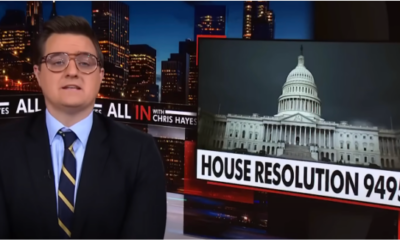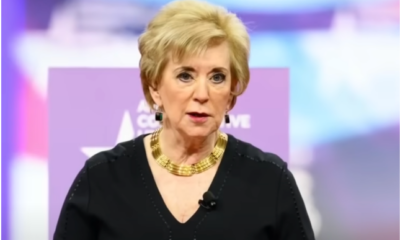Breaking News
More States Want Students To Take Personal Finance Classes

Momentum is building up for personal finance education in schools. More and more states are signifying their intention to require financial literacy classes for students as part of the regular curriculum.
RELATED: Education Secretary Wants School Openings Free From Politics
More States Adopting Personal Finance Classes

At present, almost 50% of the states within the US mandate the inclusion of personal finance classes. According to the 2022 Survey of the States from the Council for Economic Education.
Overall, 23 US states have a personal finance education mandate. In addition, 47 states include language about personal finance as part of their state education standards.
However, many do not require specific courses. This year, more states are signifying their plan to join the list of states that teach students financial literacy.
In particular, many legislators want to require high school students to take this course as a prerequisite for graduation.
John Pelletier, director of the Center for Financial Literacy at Vermont’s Champlain College hails the growing movement. “It’s been a huge change,” he said.
Prior to the coronavirus pandemic, the move to standardize personal financial education got stuck in gear.
However, if there’s a lesson to be learned during the pandemic and the ensuing high inflation, it’s that Americans need to stay in control of their finances. “What seems to propel these bills forward is a catastrophe,” Pelletier added.
Georgia To Join List of States Requiring Personal Finance Classes
The state most likely to join the list of states with personal finance class mandates is Georgia. According to the nonprofit Next Gen Personal Finance, the Peach State’s state legislature already approved the necessary measure.
The Georgia General Assembly passed SB 220. This requires all high school students to take at least half a credit of financial literacy to graduate.
Once Republican Governor Brian Kemp signs the bill into law, the new measure will take effect in the 2024-2025 school year.
South Carolina, Michigan May Also Pass Laws Requiring Personal Finance Education
In addition, South Carolina and Michigan may also join the list of states requiring students to take financial literacy courses. In particular, South Carolina currently has a bill, S16, in conference committee status.
Once this passes the state legislature and is signed into law, all Southeast states will now require personal finance subjects.
According to Next Gen’s co-founder Tim Ranzetta, there’s a fear of missing out among the states regarding financial literacy courses for students. “That’s why we’re seeing the trend there,” he added.
Meanwhile, Michigan is also on the verge of advancing legislation for self-finance courses. A similar bill requiring at least half a credit for personal finance already cleared the Michigan House of Representatives last December.
The Michigan State Senate will take up a counterpart bill next month. In addition, Minnesota and New Hampshire are also passing bills requiring students to learn about managing their own finances.
Students and Parents Want Personal Finance Courses
Data from surveys of students and parents show that many support the idea of teaching kids the value of managing their finances.
80% of respondents surveyed in California, Florida, Georgia, Michigan, and South Carolina support financial literacy courses in schools.
Consequently, many state legislatures also gave bipartisan support for such measures. Ranzetta noted that “It’s one of those common sense issues that cuts across political parties.”
Watch the 11Alive News video reporting that Georgia schools may require personal finance class for students:
What do you think about students learning personal finance as part of their school requirements? Will this help the country in the long term?
Tell us what you think about personal finance courses. Share your thoughts in the comments section below.












